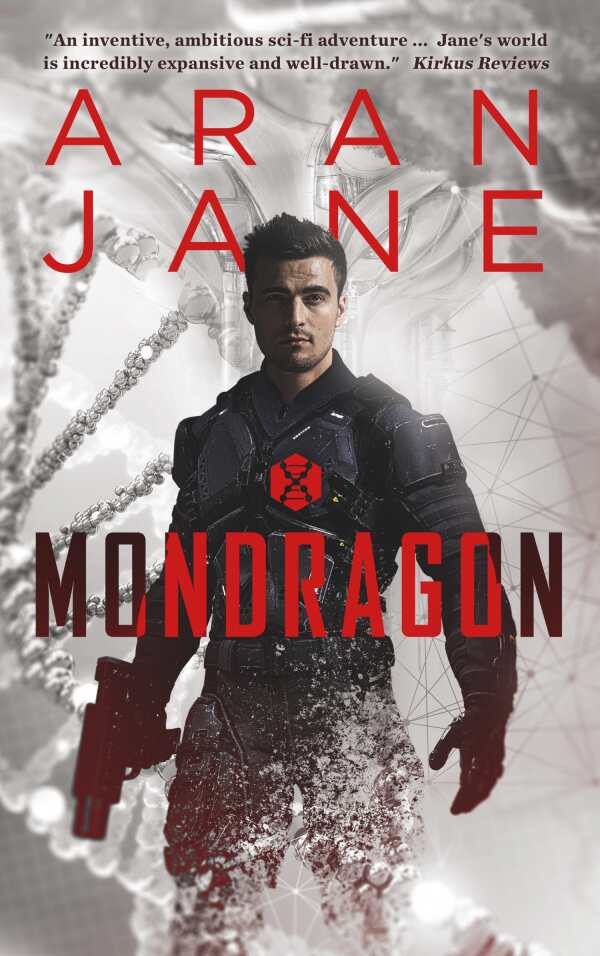Mondragon
Heavy in theoretical science but lighthearted in its approach, Mondragon is intelligent, multifaceted, and engaging.
Mondragon by Aran Jane is a work of speculative science fiction, unexpectedly infused with a kind of technopsychedelic philosophy, that tempts the creative mind with a feast of scientific potential.
The novel is set in a dual-planet empire between Earth and Mars. Biological humans, or “accidentals,” and beings who have taken the “great leap” into new forms with the potential for indefinite life extension, or “newstylers,” populate this empire. A mixed group of such beings are tasked with preventing a statistically likely genocide.
Derek Mondragon serves as an appealing protagonist. He is a young parent and, while some might tease him about his youth, there is no doubt he is someone guided by his convictions. His commitment to protect a future fit for the next generation leads him to face inexplicable dangers, and he proves easy to empathize with in this pursuit. Deeply dedicated to his loved ones, Mondragon’s pain in personal loss is well wrought on the page, even amidst the more theoretical passages, and is illustrated in personal moments with the people he loves. He is guided not just by a sense of honor or justice, but also by lust, friendship, loneliness, and compassion.
Probing the seeming limitlessness of love as a force acting in and between every quantum particle, Jane avoids sentimentality while retaining an attachment to the emotional and spiritual aspects of consciousness and being. The grass is never allowed to grow beneath characters’ feet in this book full of unpredictable action and compelling conflicts, both internal and external.
Heavy in theoretical science, but lighthearted in its approach to such complexity, Mondragon is intelligent, multifaceted, and engaging. It covers genetics, quantum physics, theories of space-time and teleportation, and the possible consequences of some interesting contemporary theories. This book is highly philosophical, taking a serious examination of the problematics of egoism versus altruism. Is it inherently human, or biological, to feel empathy? At what point, or through what processes, can the qualities of “humanity” fade or become truly lost?
Prose is rich in symbolism, ever questioning the boundary between the self and other:
Derek lifted his gaze to track the fantastic murmuration of birds, watching them rise and fall, shapeshifting like an amorphous airborne blob, turning inside out and back on itself as if controlled by a single will.
The text frequently exemplifies natural tendencies toward organized group action for the greatest good. Mondragon explores diametric examples of collective experience taken to extremes, contrasting a psychopathological participation in tyranny against a kind of elevated, enlightened cooperation. The language itself is artful, and the cast is painted so vibrantly that the diverse characters pop from the pages. Extending potential outcomes of endless lives, the text ponders: “Was theirs just an impersonation of life, with Death doing the impersonating?”
Aran Jane’s Mondragon explores the artfulness of creative science and is an exercise for both the mind and heart.
Reviewed by
Patty Comeau
Disclosure: This article is not an endorsement, but a review. The publisher of this book provided free copies of the book and paid a small fee to have their book reviewed by a professional reviewer. Foreword Reviews and Clarion Reviews make no guarantee that the publisher will receive a positive review. Foreword Magazine, Inc. is disclosing this in accordance with the Federal Trade Commission’s 16 CFR, Part 255.


